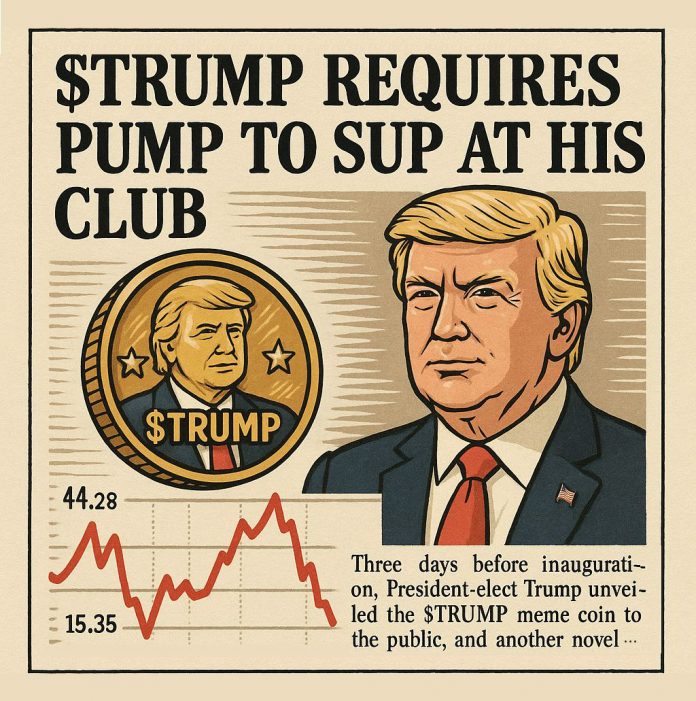
Three days before inauguration, President-elect Trump unveiled the $TRUMP meme coin to the public, and another novel method for politicians to get rich was born. Few had any illusions about the terms of this initial coin offering; there was no practical utility to the coin, and the showrunners behind it were certainly going to make millions, but if one could jump on and off the bandwagon with deft timing, they too could make a quick buck.
Thus, it happened. As word of the coin rapidly spread, eager pumpers brought the total market value of $TRUMP, nonexistent only hours earlier, to USD $27 billion. The Trump-controlled companies that created the coin netted hundreds of millions in gas and fees, and many gamblers gleefully exited the ride before the value plummeted back to earth.
The $TRUMP coin proceeded to drop from $44.28 on January 21 to $15.35 on February 11. It goes without saying that a great many investors lost money as well, but few tears are shed for those that willfully play with matches. Sure, there was a profoundly unpresidential and avaricious undercurrent to this entire meme scheme, but no credible charges of unlawfulness were levied on any parties.
Now it seems that not all the juice has yet been squeezed out of $TRUMP. The team behind the coin is currently running a sweepstakes where scores of the top coin holders will have a chance to dine with President Trump at his golf club on May 22. Ethics committees and watchdogs are flabbergasted by this latest contrivance that is simultaneously a money grab and oligarchical networking event, while blockchain devotees lament the further bastardization of crypto in general. None of which matters, of course, because if there’s one consistent trademark of the Trump presidencies, it’s been flippant disregard of questionable optics.
Maybe a look back at Trump’s post on X, dated January 17, told us everything we needed to know: “My NEW Official Trump Meme is HERE! It’s time to celebrate everything we stand for: WINNING!”
Notice there was no promise of earnings. No, he was selling something more nebulous. He was selling the intangible emotion—short, fleeting, and artificial as it may have been—of winning. Unscrupulous? Perhaps. Amoral? Without question. But let no one say that it was false advertising, because a feeling was all that was advertised. All participants understood the rules of this particular game, and all tacitly conceded that the umpire could walk away as the only guaranteed winner.





![[November]Uptober No More](https://coinhubkorea.com/wp-content/uploads/2025/10/Whisk_d78880efb01a730907f4be201effefe1dr-1-100x70.jpeg)
